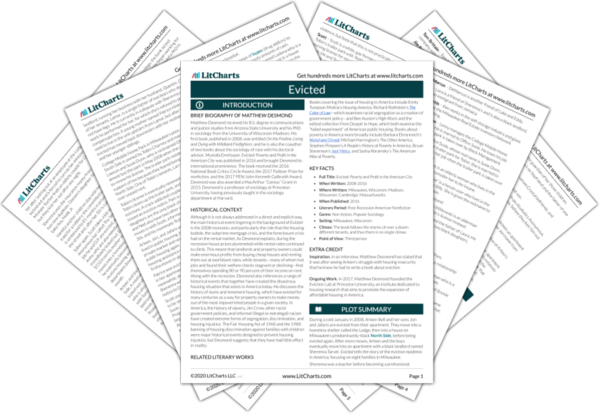Jayme’s belief that her mother and uncle need to learn to live within their means is a strange contrast to the image of the brother and sister surviving a Wisconsin winter without heat. Clearly the problem is not that Larraine is incapable of living within her means, but rather than there is no opportunity for her to
change her means. As it stands, desperately attempting to survive is her only option.
